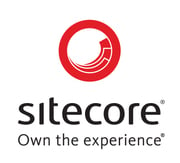

Microsoft Azure Reviews & Product Details
Microsoft Azure is a cloud computing service created by Microsoft for building, testing, deploying, and managing applications and services through Microsoft-managed data centers. It provides a range of cloud services, including those for compute, analytics, storage, and networking, allowing users to pick and choose from these services to develop and scale new applications, or run existing applications, in the public cloud.


| Capabilities |
|
|---|---|
| Segment |
|
| Ease of use |
|
| Deployment | Cloud / SaaS / Web-Based |
| Support | Chat, Email/Help Desk, FAQs/Forum, Knowledge Base, Phone Support |
| Training | Documentation, In Person, Live Online, Videos, Webinars |
| Languages | English |

Minimal setup required. It will pretty much just plug and play with other Microsoft products.
Still somewhat slow. It seems to be running off a similar back end to Visual Studio, so sometimes it takes a while to boot.
It makes rolling out clusters to an API a lot smoother, and has strengthened a good amount of the team morale in my office.
The ability to manage virtual servers in the cloud is the best part for us. We can also replicated our critical services there to have on stand by in case we have a critical outage on site. It is nice to know we have those for fail over purposes. If we were to have a disaster such as a long term outage or our data center gets taken out by a storm or other disaster, we can be back up and running quickly on their off site cloud infrastructure. We can also keep things synced with our software we use to make sure the Azure virtual server are up to date to a reasonable point in time so as not to have a significant difference in our data on our on site servers.
It is a bit confusing to navigate until you figure out where things are located. And since we are a vmware shop, we have to do some learning about Hyper-V although as I understand it, they have a solution where they can manage it at Microsoft with little interaction on the customers side,
Disaster Recovery via replicating our servers to the cloud. Sync of Active Directory. Dir Sync to sync user accounts over to Office 365. Allowing our Office 365 users to have a self service self password reset solution. We operate a mixed environment. Exchange in house for employees and Office 365 for our students as we are a university user.
I really enjoy the convenience of being able to get to my Azure hosted things from anywhere. They have great customer service around all of their products also.
Some of the tools and services are very tricky to pick up, even for established IT professionals.
We have helped our customers access their data from anywhere in the world.
The whole process of deployment and cluster mgmt is super fast with Azure services.
Learning curve can be lil steep for an entry level person.
We are using azure for our desktop application. It has made the entire process of app developmemt easier. Its super sensitive cluster mgmt makes it really a cool tool wo work with
Ease of settng up and configuring virtual machines; High performance, reliability and availability.
Tech support sometimes doesn't understand our current setup well enough to provide the best support despite multiple outreach sessions.
We deployed Azure to reduce our IT infrastructure footprint and to try and control costs (power/space/cooling and onsite IT support). Overall it has gone very well, despite a high initial learning curve.
Built on the Microsoft platform, there seems to be some reliability there.
Sometimes the data migration is not very clean and seems to be prone to errors.
I'm trying to optimize the configuration of popular open source tools and technologies specifically for Azure and this solution does that. I am definitely realizing the benefits.
Alignment with market standard of security standards
Not all features always feel as mature as with aws (for instance rIs plans).
Give most of the cloud natives solutions needed by most companies
Good tutorials are available,and it's easy for anyone to shift from other cloud to azure easily.Their association with databricks for the data engineers is much appreciated.
The UI keeps changing too often that sometimes I find difficulty finding what I wanted to do,but I understand it's for the better. Expect more functionalities in ADF side of things.
All business is moving towards cloud for their big data requirements,and azure is definitely doing it's part in providing the scalability that is needed and providing the right tools.
Reliable infrastructure and maintenance. Good working experience with Data Lake Storage and Data Factory.
More improvements to user interface can be done.
For me, it's mainly solving complex data warehousing solutions with complex analytical SQL queries.
The hybrid model overcomes the challenges of local and cloud solutions. Provides various features.
Documentation and resources are a bit confusing. Normal people who don't have technical knowledge won't understand the use.
I am using it for my webapp. And I really love its speed and capacity to deliver data effectively.
performance is better then what i expected
the user interface needs to be improved a lot
NAS lags are almost gone
User don't have to worry about maintaining the underlying resources used, any upgrade. Use it like a managed service in your application.
Does not provide custom snapshots that can be bacuped to our own storage
G
If you "follow the manual" it's really easy to set up a new container, or re-use an existing (docker) container. It works almost just out-of-the-box-like. If you know your way around in azure, you have all the tools available to manage and monitor containers. There is not really anything else to say... containers are a well defined thing in IT, and azure handles it like a first citizen.
It gets difficult if you need to expose a container only internally because now you're dependent on VPN and gateways within azure. It's not too complex per se, but every piece of functionality within azure seems "hidden", which keeps you searching for it over and over again. If azure is something you work in 100% of the day, every day of the year, this should be no problem. But I think that "knowing your way around" should not be the most difficult part of any learning curve. Even if you have no connections between your container and any other azure module, it's a search for "where the heck was it again". Every single time over and over again.
The main function of using containers within our organization is to be able to have a well defined and easy to maintain boundary around some functionality. For instance, we use graylog as a logging server, but maintenance of graylog can be hard. It needs its dedicated unix server, and configuration is complex. A container makes it easier to update, make backup copies and define a working configuration that you can re-use. Normally the use of a container introduces just a new environment with its own complexities (a server that you need to maintain, monitoring, expertise etc). As such, those complexities can outweigh the goal that you like to achieve, which was reducing complexity. With azure you can eliminate the complexities of maintaining containers, which makes it suddenly a more viable option for a legion of other possible container candidates.
Easy to use and very compact, It is also very descriptive so that new learner can get used to it very easily
Nothing as such. I do not face any kind of difficulty while using the software but I would be more happy if it is more easy to understand all feature
managing system resources
This product has the possibility to be very powerful in the future allowing you to run Azure in our own DC, needs a bit of work but nice to see computer hosting heading that way.
What can I say about invoicing side of this, mind-blowingly complicated, much like a lot of Microsoft products. It is fairly restrictive at the moment but hopefully will evolve over time.
We wanted better control over our hosted DC, so we are trialled Azure stack.
Below feature is most liked by my business. - Serverless - Azure Functions - VM Creation - Attached private VNET with company security is taken care really well - Great support for IOT
As I have repeatedly mentioned that pricing is something which gone really high when work load is high which make business to design and restrict to build more on azure that could be one of the disadvantage.
We moved our workload for AEM and hybris moved to azure because we feel azure is onto something great and we would like to part of it. there are lot of workflow which we are thinking to move to azure logic app.
Good way to implement CI/CD and dev ops and also a neat way to store the images just like the docker containers
The automation script in powershell for this resource is really confusing and lacks documentation.
Creating small containers as per requirement and scaling up the resources based on requirement
Simple and easy way to store your docker images for your apps.
UI is not easy to use, it is a real maze.
Easy deploy app using docker
Azure container registry can be used alternately to host a docker image. You can create a script to be used in a pipeline which will push the docker image to the Azure registry. We create a container in the registry by searching for a container and creating a new registry name,use existing or new resource group,the location,and select if the registry is managed or no. I like how all the dashboard items squeeze into icons on the left when you are on any given new window,although you may need to be familiar with all the icon images to be able to select whatever you need,but its pretty neat,to have all of them listed there. Use access keys to push the local docker image into the registryusing the tag fibon api. The image is then seen on the repositories. You can also pull the image into the local machine too. Docker and Azure are new technologies we are exploring in the company and we are still new to this technology but from what we have seen,it seems like a pretty inclusive tool to use docker images,several different apps,create containers etc
We are still evaluating,this is a new technology in the company and up until now we have not found any issues.
Creating containers for deploying network related functions
Constant improvement in feature and function to azure
sometimes response time is a little slow
benefits of azure as a platform instead of a stand-alone solution



